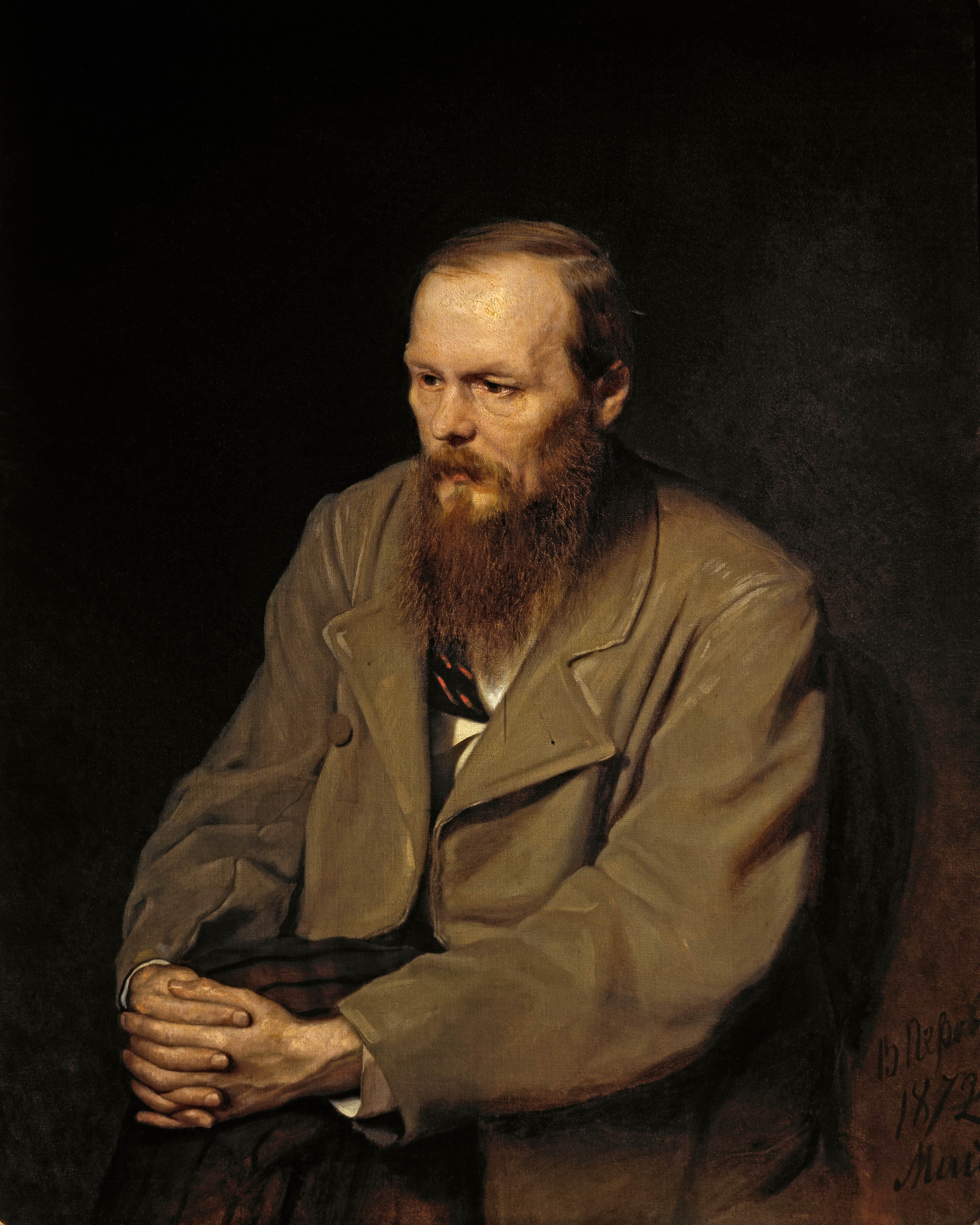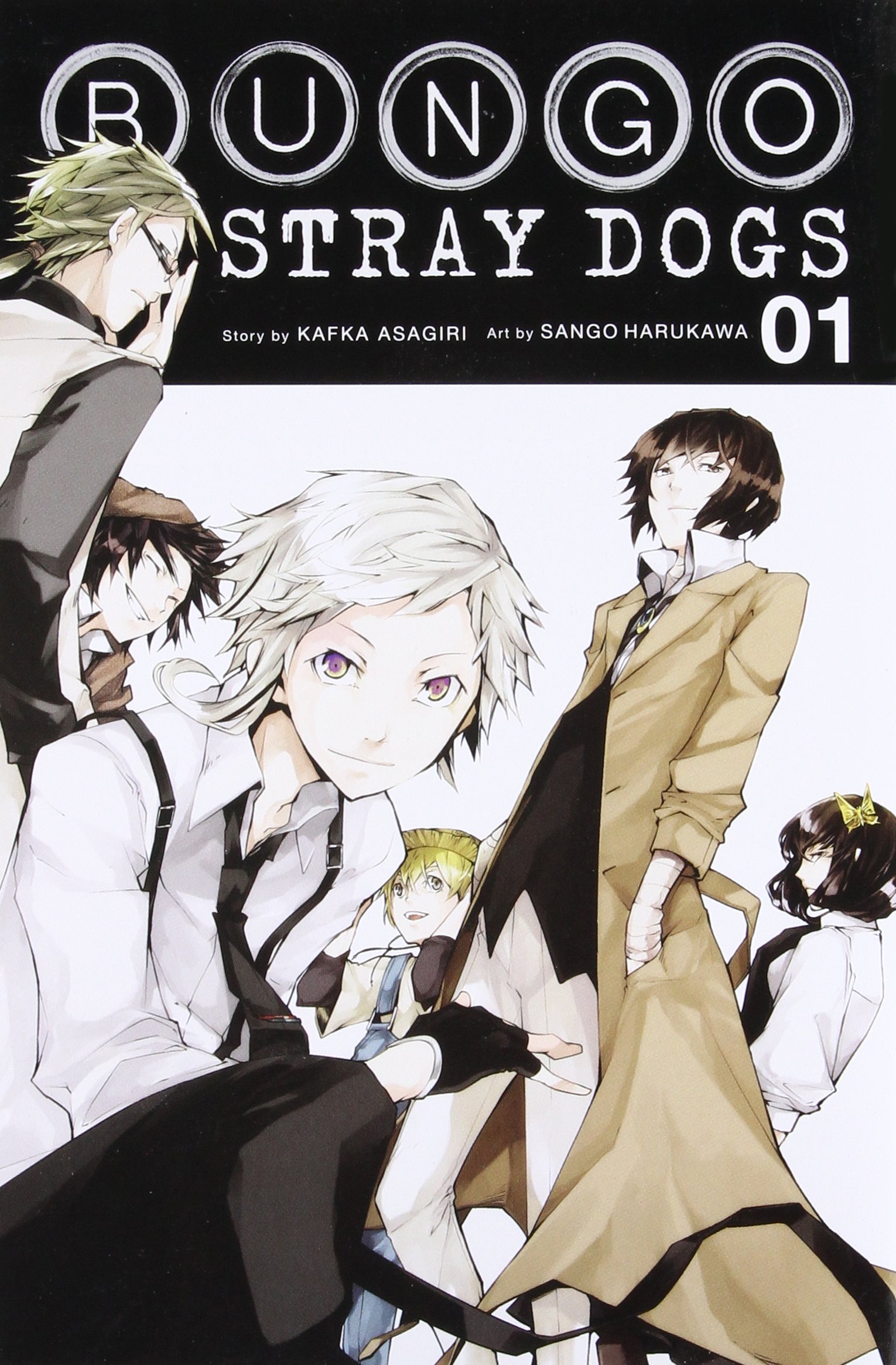My favourite author

Admittedly, I became interested in reading Dostoevsky because I was a fan of the Bungo Stray Dogs character based on him and his works, and so I bought Crime and Punishment. Whilst before hand I was reading books every so often and enjoyed them well enough, it's not a stretch to say that Crime and Punishment not only made me fall in love with Dostoevsky's writing, but with literature as an art-form. I found the book to be incredibly intellectually stimulating, it made me think constantly and even weeks after finishing it remained lingering in my mind. It was the first time I had ever filled a book with my own notes and annotation and would constantly return to re-read sections for the quotes and profound psychological insight. I could see parts of myself in Raskolnikov, which unsettled me in some ways, but made me connect with his spiral more. The book made me feel as though I was more whole, more complete as a human. After reading Crime and Punishment, I immediately bought the Wordsworth Notes From Underground and Other Stories and loved that also.
Not only did his works make me realise how powerful literature is, I also began learning Russian in hope that one day I'll be able to read them in the original Russian. Dostoevsky's works, whilst having many melancholic and dark themes, has underlying beauty and hope. I truly cannot state my passion for his writing enough, and I strongly urge anyone with even a slight interest in psychological and philosophical themes to read one of his books.
How I came to love the classics
I believe that classics are perhaps some of the most polarising books; on one hand you have snobbish scholars treating each one as a precious religous text and dismissing all proper, well-thought out criticism as someone simply "not understanding" the work, and on the other hand you have those who were forced to read some books in high school and grew to have an un-wavering hatred for the classics, stating all of them to be boring slogs. I used to actually fall into the latter, I truly thought that all classics were garbage. This was due to a phase I went through of hating books as a whole, which came about from having been forced to read stories which were poorly-written and that I simply disliked. I couldn't stand the YA fiction I was told that others my age were supposed to like (e.g. The Hunger Games) and when I had to read a classic, it was The Lord of the Flies and The Secret Garden, both of which being very dull to me as I wasn't interested in those stories.

What made me give classics another chance? I had became a big fan of the anime and manga Bungo Stray Dogs. I loved how well-written each character was, and it just so happened that each character was based on a classic author. This ended up making me give classics another go, despite past experiences being negative. As said in my section above on Dostoevsky, I fell in love with literature as an art-form. So as not to re-tread what I've already stated, I recommend reading what was said there so I can move on.
The biggest issue with my view on classics in the past, was that I had lumped them all in together. Within classics there're different genres. Some books are sci-fi, some horror, some highly psychological. I've never had an interest in contemporary books similar to The Secret Garden, so why would I have an interest in a classic book within the genre? And, sometimes you simply dislike an author's writing style. I realised that I didn't hate 1984 because it was a classic, but because I hated Orwell's writing (which I can confirm, as I attempted to read Animal Farm this year and his style is simply not for me)!
The way which many people are taught to think about classics is completely wrong. You shouldn't read them purely because it makes you seem intelligent and criticism of classics should always be allowed, there are loads of classics which I will give a proper critique of. I think there are many benefits to reading classic literature, for one they are deeply integral to a culture and you may find yourself noticing references to a classic work within contemporary media, and it can be interesting to see how art has been influenced by these works. And, most importantly, I find that these books have lasted decades as they're truly great and show a deep understanding of humanity.
My favourite quotes:
*Please note that the page numbers are for my copy of the work, they will differ for each version depending on publisher. The translation may differ to other publishers as well, so I'll make sure to say what version each one is from.
"Pain and suffering are always inevitable for a large intelligence and a deep heart. The really great men must, I think, have great sadness on earth," -Crime and Punishment (Chartwell Classics, Garnett translation), Part Three - Chapter 5, Pg. 257
"and your worst sin is that you have betrayed and destroyed yourself for nothing." -Crime and Punishment (Chartwell Classics, Garnett translation), Part Four - Chapter 4, Pg. 313
"Nothing in the world is harder than speaking the truth and nothing easier than flattery." -Crime and Punishment (Chartwell Classics, Garnett translation), Part Six - Chapter 4, Pg. 457
"Is it possible that he has nothing but cowardice and fear of death to make him live?" -Crime and Punishment (Chartwell Classics, Garnett translation), Part Six - Chapter 8, Pg. 501
"Mere existance had always been too little for him; he had always wanted more." -Crime and Punishment (Chartwell Classics, Garnett translation), Epilogue, Pg. 521
"In the majority of instances human beings, even the evil-doers among them, are far more naive and straightforward than we suppose. And that includes ourselves." -The Brothers Karamazov (Penguin Classics, McDuff translation), Part 1, Book 1, Chapter 1, Pg. 18
"When I go among people I do indeed feel that I'm more vile than any of them and that they all take me for a buffoon, and so I say to myself: "Ver well, I really will play the buffoon," -The Brothers Karamazov (Penguin Classics, McDuff translation), Part 1, Book 2, Chapter 2, Pg. 62
"[...] the more I love mankind in general, the less I love human beings in particular," -The Brothers Karamazov (Penguin Classics, McDuff translation), Part 1, Book 2, Chapter 4, Pg. 79
"Stupidity is brief and guideless, while wit equivocates and hides." -The Brothers Karamazov (Penguin Classics, McDuff translation), Part 2, Book 5, Chapter 4, Pg. 308
"I think that if the Devil doesn't exist and, consequently, man has created him, he has created him in his own image and likeness." -The Brothers Karamazov (Penguin Classics, McDuff translation), Part 2, Book 5, Chapter 4, Pg. 318
"There is for man no preoccupation more constant or more nagging than, while in a condition of freedom, quickly to find someone to bow down before." -The Brothers Karamazov (Penguin Classics, McDuff translation), Part 2, Book 5, Chapter 5, Pg. 331
"I want to talk about everything with at least one human being as I talk to myself." -The Idiot (Penguin Classics, McDuff translation), Part 3, Chapter 8, Pg. 501